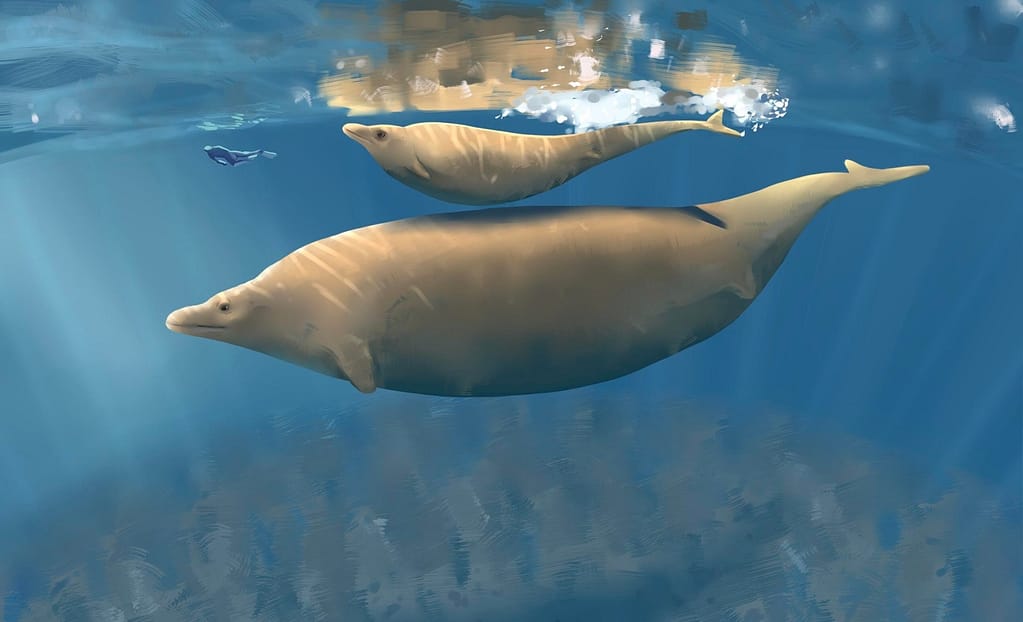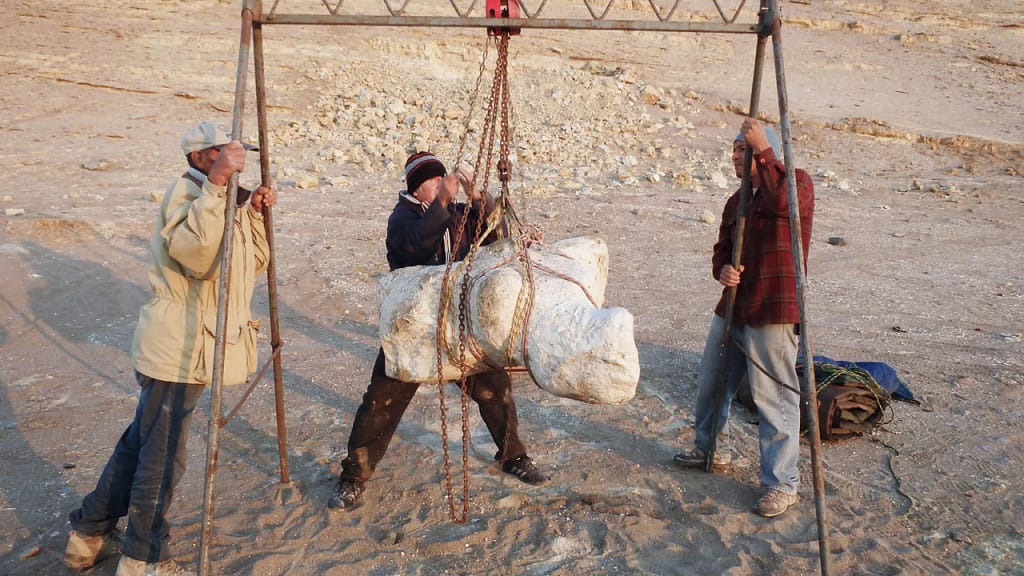
Perucetus colossus: An Enormous Ancient Sea Creature
Incredible findings from Peru reveal Perucetus colossus, an ancient sea creature that challenges size records. Research suggests this extinct giant might have weighed 85 to 340 metric tons, potentially surpassing the renowned blue whale.
Research and Surprises
Expert Giovanni Bianucci from the University of Pisa suggests Perucetus could have been even larger than the blue whale. Moreover, additional insights bring intriguing surprises to light.
Unusual Size and Shape
Although Perucetus was shorter than the blue whale, its skeletal mass may have exceeded all other known mammals. This distinctive feature, combined with its shape, paints a fascinating picture of prehistoric marine life.
Record-Breaking Weight
Research indicates Perucetus might have weighed two to three times more than today's blue whales. This remarkable weight range offers a glimpse into the colossal nature of this ancient creature.
Adapting to Ancient Waters
Perucetus' incredible size could be due to its adaptation to turbulent ancient coastal waters. Its strong skeleton provided stability, and its unique swimming style allowed it to move through water with remarkable efficiency.
Strong Bones and Adaptation
Scientist Giovanni Bianucci highlights Perucetus' unique skeletal structure, similar to that of large aquatic herbivores. This remarkable adaptation adds to the growing understanding of this creature's ecology.
Exploration and Impact
This discovery resulted from collaborative efforts starting in 2006 in Peru's Ica Valley, rich in fossils from around 66 million years ago. These findings have a profound impact on our understanding of ancient marine life.
Perucetus colossus belongs to the basilosaurid family within the Cetacea order, which includes whales, dolphins, and porpoises. This classification provides valuable context for interpreting its significance.
Surprising Evolution
This finding challenges what we know about animal evolution, offering intriguing insights into the variety and adaptability of marine creatures. These revelations contribute to a more comprehensive understanding of life's complexities.
Food for Thought
Scientists debate what Perucetus ate, considering herbivorous plant-eating habits, mollusk and crustacean consumption, or scavenging vertebrate remains. This ongoing discussion sparks new questions and curiosity about this creature's ecological role.
Continued Exploration
More exploration in the Ica desert is expected to uncover fossils that deepen our understanding of cetacean evolution. As researchers delve further, we anticipate new revelations about ancient marine ecosystems.
Uncovering Clues
Insights into Perucetus' life could reveal more about the origins of blubber and its importance. By studying its life history, we gain valuable clues about its adaptations and their significance.
Significance and Beyond
This discovery holds broader significance, shedding light on our planet's history and encouraging further exploration. As we delve into Earth's past, we discover untold stories of ancient life forms and their impact on our world today.

A Perucetus colossus specimen is prepared for transportation from its origin site.



